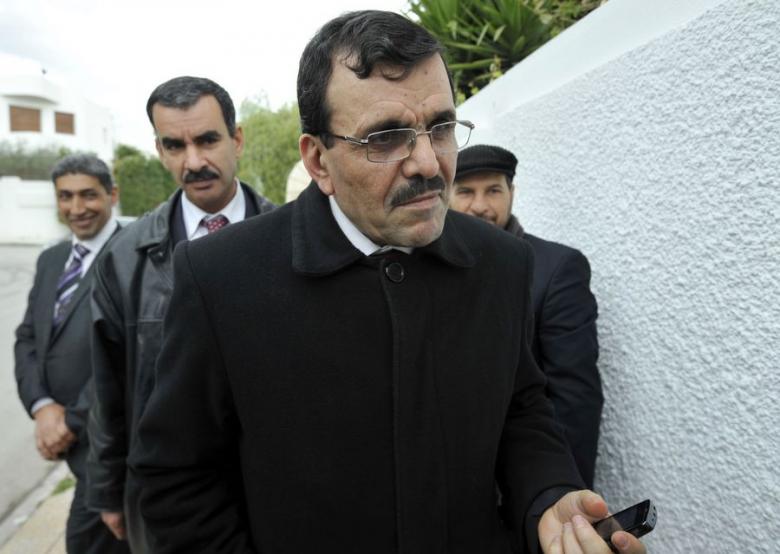Tunisia Appoints New PM

Local Editor
Tunisia's president Friday named al-Nahda candidate and Interior Minister Ali Larayedh to replace Prime Minister Hamadi Jebali, who resigned this week amid a major political crisis.
 "He is the official candidate of al-Nahda for prime minister," said Mouadh Ghannouchi, son of al-Nahda chief Rached Ghannouchi.
"He is the official candidate of al-Nahda for prime minister," said Mouadh Ghannouchi, son of al-Nahda chief Rached Ghannouchi.
The presidency said on Wednesday the party was entitled to choose the new premier because it had the most seats in the national assembly.
Pro-opposition publication Kapitalis accused al-Nahda of selecting Larayedh in order to present "a more pleasant face than the falcons currently dominating" the party, hence making his candidacy more likely to be accepted by Marzouki.
Larayedh will have 15 days to put together a new government team, which will then be submitted to parliament for approval.
Al-Nahda, which was already leading a coalition, has promised to build as broadly based a government as possible. And with its 89 MPs, it should have no difficulty getting the 109 votes needed for a majority.
Larayedh, who was imprisoned and tortured under the regime of Zine El Abidine Ben Ali, has been interior minister since the dictator was ousted in 2011.
Jebali resigned on Tuesday after his plan to form a non-partisan government, announced in the wake of public outrage over the murder of leftist politician and government critic Chokri Belaid, was rejected by al-Nahda, his own party.
The assassination plunged Tunisia into its worst political crisis since Ben Ali's ouster, inflaming political tensions and laying bare divisions between moderates and hardliners within al-Nahda.
Coincidentally, it was Larayedh who told reporters on Friday that there had been arrests in the murder inquiry, but he did not say how many.
"The investigation has not led yet to identify the killer, those behind the murder and its motives," he said.
The killing also sparked deadly street protests and strikes, which Jebali attempted to defuse by announcing plans for a non-partisan cabinet of technocrats to lead Tunisia into early elections.
In a televised farewell speech on Thursday night, Jebali repeated that his proposal was the best way forward, while reaffirming his decision not to accept a new appointment with "no prospect for success."
Tunisia is deadlocked over the drafting of a constitution, with parliament divided over the nature of the country's future political system 15 months after it was elected and more than two years after the revolution.
Source: News Agencies, Edited by moqawama.org
Comments
- Related News

US Senate Votes 15-3 for Arming Syrian Opposition
11 years ago


